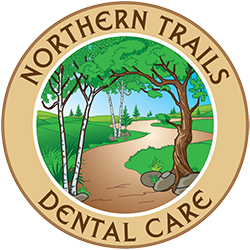What you need to Know about Obstructive Sleep Apnea
 Obstructive Sleep Apnea (OSA) is a sleep disorder where breathing stops repeatedly throughout the night. Breathing stops because the muscles in the throat relax and obstruct that airway. The consequences of OSA are far-reaching. Some sufferers of OSA have trouble in school, and at work or experience mood swings that can interfere with their daily lives. It’s important to know what obstructive sleep apnea is, how to spot it, and what to do if you think you or your partner have OSA.
Obstructive Sleep Apnea (OSA) is a sleep disorder where breathing stops repeatedly throughout the night. Breathing stops because the muscles in the throat relax and obstruct that airway. The consequences of OSA are far-reaching. Some sufferers of OSA have trouble in school, and at work or experience mood swings that can interfere with their daily lives. It’s important to know what obstructive sleep apnea is, how to spot it, and what to do if you think you or your partner have OSA.
What’s going on during sleep apnea episodes?
The cycle of obstructive sleep apnea can occur 10-300 times a night. Once the body is in deep sleep, the muscles in the throat and airway relax causing the airway to close. Without oxygen passing through the airway, blood oxygen decreases causing the heart to pump and blood pressure to rise. This signals the brain to wake the body up. The body wakes, disturbing the normal sleep cycle — only to start the sleep apnea cycle again.
How to spot sleep apnea
It’s important to know only a sleep test overseen by a medical professional will determine an official diagnosis. However, some signs and symptoms can alert you to go to a professional.
Symptoms of Obstructive Sleep Apnea
- Snoring–Snoring is a sign the throat muscles are relaxed and interfering with the airway.
- Waking up with dry mouth–If you are mouth-breathing at night, you may wake with dry mouth. Mouth-breathing and snoring could be signs of OSA.
- Excessive daytime fatigue–If sleep is being disrupted during the night, you will feel exhausted during the day. Daytime fatigue can be dangerous if you are driving or working with machinery.
- Your partner notices you stop breathing during sleep or your partner wakes up by your gasping for air or notices you stop breathing at night.
- Irritability or mood swings — Lack of sleep can lead to irritability and mood swings.
- Difficulty paying attention or focusing during the day — Lost sleep can cause a lack of focus during the day.
Risk Factors of Obstructive Sleep Apnea
Some people are at more risk than others for OSA. Risk factors include:
- Obesity
- Large neck
- Narrow airway
- Being a man
- Age
- Having a family history of OSA
- Drug use, like sedatives or alcohol
- Smoking
- Congestion
Because OSA causes oxygen levels to drop and blood pressure to rise, it puts excess stress on the heart. They have shown OSA to increase the risk of having other health issues like heart disease, diabetes, and stroke.
Diagnosis and Treatment of OSA
Diagnosis
To get a diagnosis of OSA, your sleep needs to be monitored. One test, polysomnography records brain waves, eye movement, chin muscle activity, airflow, blood oxygen levels, heart rate, and leg movements. This test occurs in a sleep lab and is supervised by a technician. Another test, Limited Channel Monitoring is similar but only monitors blood oxygen levels and breathing.
Treatment options
If you’re diagnosed with OSA, there are several options for treatment. The first, and most common is a Continuous Positive Airway Pressure (CPAP) machine. A CPAP machine comprises a mask and machine that continually pumps oxygen and air through the mask into the mouth and nose. This forces air into the body, preventing the drop in oxygen and stress on the heart. CPAP machines are effective, but often patients do not use them like they should due to discomfort and noise. Another option for treatment is an oral appliance. If your dentist treats sleep apnea, ask about oral appliances. They wear these appliances like a nightguard but shift the jaw in a way to keep the airway open. Ask your doctor and dentist what treatment is best for you.
We can treat sleep apnea. It’s important if you suspect you have sleep apnea to talk to your medical provider or Dr. Buck about your concerns. Call Northern Trails Dental Care today!
Disclaimer: The content of this blog is not intended to be a substitute for professional medical advice, diagnosis, or treatment. Always seek the advice of qualified health providers with questions you may have regarding medical conditions.










